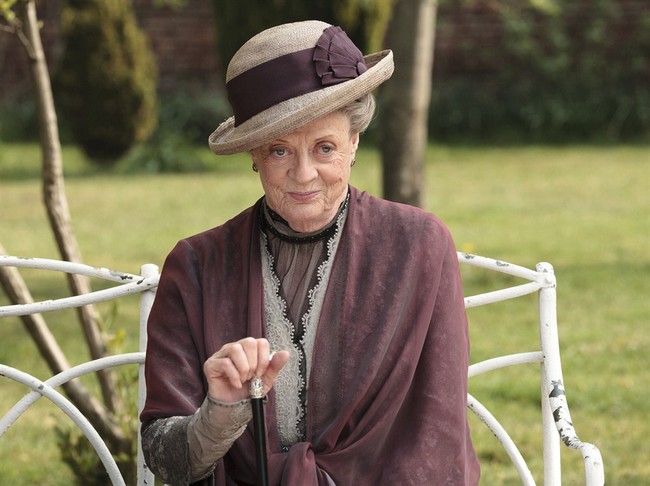When a legend passes, one must take note, and take stock. Today, legendary actor Maggie Smith exited the stage at the age of 89, having delighted generations of audiences at both the cinema and the theatre. Her film and TV credits go back nearly 70 years, and Smith worked until her death:
Smith’s sons, Chris Larkin and Toby Stephens, paid tribute to their mother in a joint statement. “It is with great sadness we have to announce the death of Dame Maggie Smith. She passed away peacefully in hospital early this morning,” they wrote.
“She was with friends and family at the end. She leaves two sons and five loving grandchildren who are devastated by the loss of their extraordinary mother and grandmother,” Larkin and Stephens wrote. They did not immediately specify a cause of death.
Smith gave excellent performances in so many fims that her actual credit count at IMDB might surprise people. They list 86 appearances in total as a performer, and almost as many credits for appearing as herself in various other TV shows. Needless to say, Smith made herself count when she did appear in films and TV, but spent a good part of her time on stage too.
Every generation can point to a Maggie Smith character as their “classic” performance. This generation will mourn the loss of Harry Potter’s Professor McGonagall, or perhaps Downton Abbey’s Violet Grantham. The previous generation will recall Smith as the Mother Superior in Sister Act, the gentle foil for Whoopi Goldberg’s hilarious antics. Before that, Smith won an Oscar for California Suite, gave an excellent performance in the original all-star Death on the Nile, and offered great performances in prestige films such as A Room With a View.
But perhaps her best work, and the film with the most enduring lessons, came in her other Oscar-winning performance. The Prime of Miss Jean Brodie hit theaters in 1969, a film version of the stage play, and offered a scathing social commentary on indoctrination as education, hero-worship, manipulation, and cults and near-cults formed around dangerous figures. (Spoilers to follow, but the film is fifty-five years old.)
Playing the title role, Smith created a complex and powerful look at a self-styled rebel in a conformist culture, but one that unwittingly does damage to all around her. In a way, it provides the opposite of the later Dead Poets Society, in which a charismatic instructor breaks through that conformity to deliver wisdom. Smith’s Jean Brodie clearly believes that to be her role at the 1930s-era Edinborough girls’ school at which she teaches young and impressionable girls. “Give me a girl at an impressionable age,” Jean Brodie declares, “and she is mine for life.”
That does indeed prove tragically true in at least one case. Given the era in which the film is set, the script reveals that Brodie is enamored with fascists like Mussolini and Franco, portraying them in romantic terms to her impressionable students. Brodie also manipulates — or tries to do so — the sexual lives of her students and her colleagues. She sees herself in entirely heroic terms, and even her eventual destruction teaches her nothing.
The time period of the setting, plus the contemporary period in which it was produced, made the fascists the proper betes noires of the film. But it is not hard to imagine — indeed, not hard to find — academics at various levels of the education establishment making heroes out of Mao, Che, Hugo Chavez, Ho Chi Minh, and so on. The impulse toward indoctrination in educational settings well below the college level has only grown worse in the decades since The Prime of Miss Jean Brodie, and Hollywood has only grown less honest about it. (This is a great partner piece for another of my favorite films set in the secondary education context, The Emperor’s Club, in which the collapse of civil virtue is shown in institutional erosion.)
The Prime of Miss Jean Brodie offers a cautionary tale about educators who seek to build cults and indoctrinate rather than educate. It also gives us Maggie Smith’s finest performance, full of nuance about a self-delusional woman who refuses to recognize reality or see beyond her own personal ambitions.
The trailer offers a glimpse of these themes, but seems to have avoided the darker aspects of the story. It also features the lovely theme song “Jean” written and recorded by Rod McKuen and later popularized by recording artist Oliver, but which is oddly discordant with the material. This isn’t a romantic look at a beloved educator, but a warning about charismatic-but-delusional educators. If you have never seen this before, be sure to add it to your watchlist immediately.
Read the full article here










